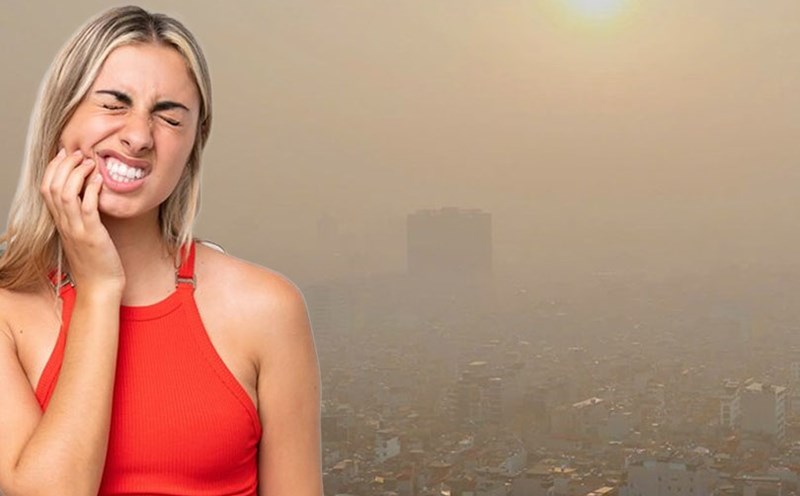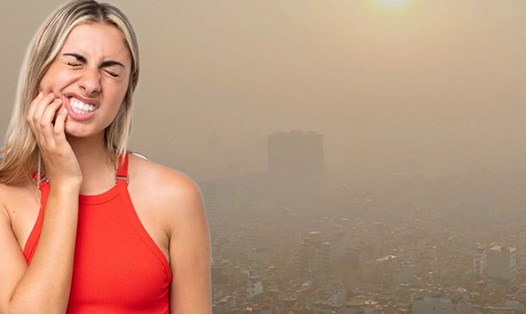According to the report on air quality developments of the Ministry of Natural Resources and Environment, in recent times, air pollution in Hanoi has tended to increase, at times the air quality index (AQI value) has reached a bad level.
Although air pollution occurs seasonally and is affected by climate and weather conditions, monitoring data from the Ministry of Natural Resources and Environment shows that air pollution has gradually increased, affecting human health and socio-economic development activities.
According to the World Health Organization, exposure to air pollutants increases the risk of acute respiratory infections, chronic obstructive pulmonary disease, asthma, cardiovascular disease and stroke. It can also cause skin damage, eye diseases, impact the nervous system, immune system, and affect mental health.
To proactively protect people's health from the harmful effects of air pollution, the Department of Medical Environment Management - Ministry of Health has developed recommendations to prevent and combat the effects of air pollution on health to help people, especially those who are sensitive to air pollutants such as children, pregnant women, people with respiratory and cardiovascular diseases, and the elderly, have basic knowledge in implementing preventive measures and protecting health.
These recommendations are based on the AQI air quality index. Accordingly, when the AQI index is at a poor level, it can affect health, especially sensitive groups, and outdoor activities should be reduced or limited to avoid exposure to air pollutants.
Preventive measures, health protection
Regularly monitor air quality on the websites of the Ministry of Natural Resources and Environment and the Departments of Natural Resources and Environment of provinces and cities to take appropriate preventive and health protection measures.
When leaving the house, always wear a quality mask and wear it properly.
Regularly clean your room and house, and keep your living environment clean and airy. You should use a mask and protective glasses when cleaning if there is a lot of dust or the air is polluted from poor to dangerous levels.
Limit the use or replace the use of honeycomb coal stoves, firewood, and straw burning with electric stoves, induction stoves, or gas stoves.
Planting trees helps prevent dust and clean the air.
For cigarette and tobacco smokers: should quit or limit smoking; should not smoke indoors. For non-smokers, should stay away from cigarette smoke.
Regularly monitor your health and have regular health check-ups.
For people sensitive to air pollutants (children, pregnant women, people with respiratory and cardiovascular diseases, the elderly):
- Avoid exposure to sources of air pollution emissions from vehicles; construction sites; cooking areas burning fuel such as coal, firewood, straw or other areas at risk of air pollution.
- During times of air pollution, if symptoms or acute illnesses such as fever, rhinopharyngitis, bronchial pneumonia, blood pressure, cardiovascular disease, etc. appear, you should immediately go to a medical facility for examination, consultation and treatment.
- Enhance nutrition to improve physical condition and resistance.
- Pay attention to keeping your body warm in winter, avoid sudden cold.
- People with respiratory and cardiovascular diseases need to comply with and maintain treatment as prescribed by a specialist. If there are signs of discomfort or worsening, they should immediately go to a specialized medical facility for examination, consultation and treatment.
- The elderly and people with respiratory and cardiovascular diseases need to comply with regular health check-ups.











